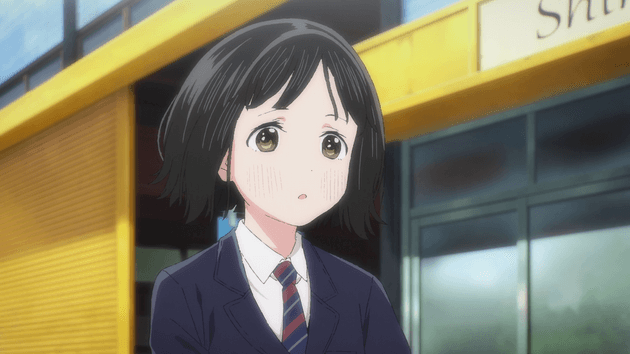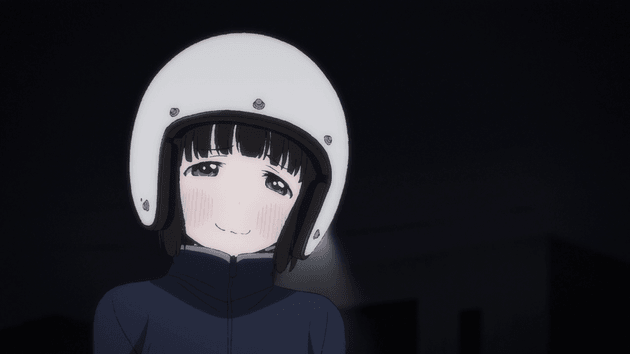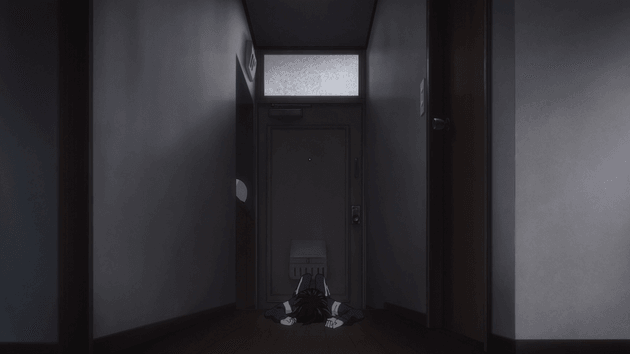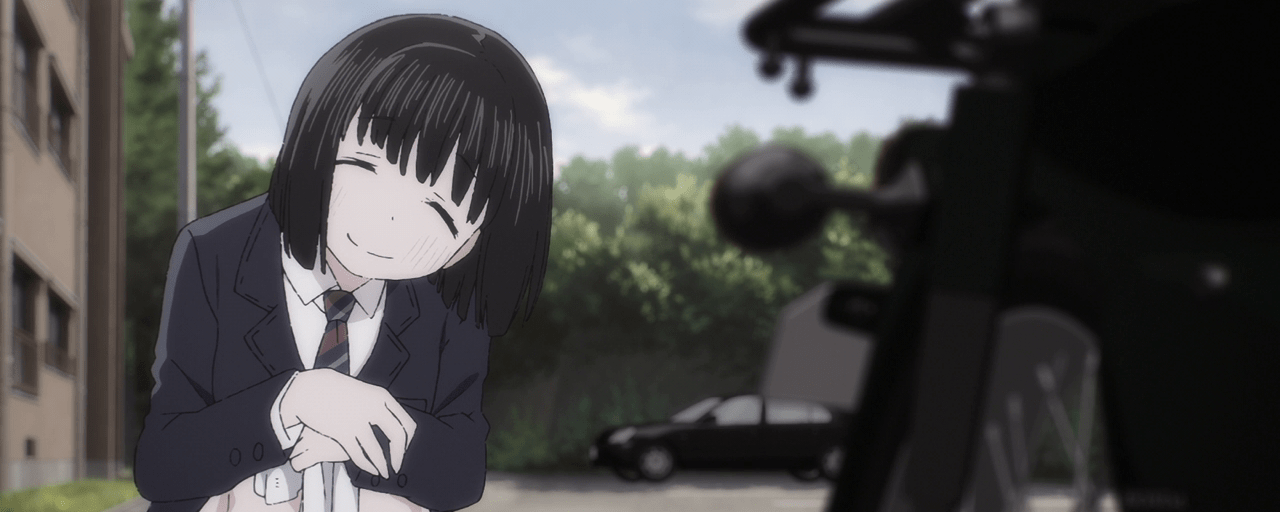There seems to be an unusual degree of melancholy to the selection of cute girls doing cute things shows on offer this season. I felt it first with Yakunara Mug Cup mo and now even more acutely with Super Cub.
This is a quiet anime—quieter than any I’ve seen in quite some time. There’s little music. Sparse dialogue. Few inner monologues at all. Subtle changes in facial expression convey most of Koguma’s thoughts, and the drab colours and persistent silence do a fantastic job of mirroring our protagonist’s empty, lonely existence. It truly lives up to the episode’s title: Nainai no Onna no Ko (The Girl with Nothing).
Until, of course, it begins to fill up.
The story follows Koguma (Yomichi Yuki), a girl with nothing to her name—no family, no friends, no hobbies to speak of. She follows the same daily routine, eating the same simple meals, taking the same commute to school, until one day she discovers she wants a motorised bike. It’s this eponymous Honda Super Cub that fills her world with colour and music, and by extension, does the same to ours.

This contrast between these moments of vivid colour and music, and those of muted tones and silence is what gives this first episode so much of its charm. It’s a masterly work of impressionism, painting for us an image of Koguma’s life and lack of meaning without ever needing to explain them outright1.
It begins from the very first moment of the episode. Still landscapes. Backgrounds devoid of life. Empty trains and streets. Deserted classrooms. It’s as poignant a description of loneliness as any I’ve seen in anime before, and with the added dimension of Debussy’s Arabesque No. 1 providing a stillness of time through it’s main theme’s use of two repeating chords. Her life has been this way a long time and is ever unchanging.

Even once she obtains the bike, the melancholy isn’t entirely eradicated. It’s fitting that two of the three musical pieces were impressionist works by Debussy. Impressionism is often defined in terms of ‘colour’—taking advantage of the timbres of instruments involved, the harmonies used, and the textures provided by its orchestration. In a sense, this also plays into the same subdued and muted tones of the rest of the episode; Debussy’s piano works in particular have always exuded a haunting air of solitude, and the loneliness of the solo piano perfectly compliments the episode’s themes.
Clair de Lune plays as Koguma’s day comes to an end and, finding herself unable to sleep, she decides to go out on her new bike once more. Clair de Lune was not always intended to be titled as such, and perhaps its original title—Promenade sentimentale (Sentimental stroll), from a collection of poetry by Verlaine entitled Paysages tristes (Sad landscapes)—would be more fitting to describe the emotions and atmosphere it imparts in this instance. Not only does it emphasise the continued solitude of her night-time outing, but traces the slight sadness and worry over the earlier truck that so closely passed her by and almost left her afraid to go out on her new companion again.

The whole episode ends up feeling almost serene in its atmosphere, despite the underlying melancholy. There’s a calm healing to the way her discovery of meaning is portrayed, and in the choices of music and general direction. I’d perhaps even go so far as to call it iyashikei—it certainly stirred very similar feelings.
Part of this lies in the the fact that Koguma captured me immediately. Her joy at discovering the bike was palpable and I can fully empathise with the way she dotes upon it. I felt sad for her when it suddenly stopped working—her brief moment of colour and completeness so abruptly snatched away—and relief when she managed to get it functioning again. By the end of the episode, even her daily routine has changed. It will be interesting to see how much more she grows.

I have but a single concern about this series as of this moment. A good part of its magic was in the artistic contrasts, and those tricks aren’t going to hold up as well when friends are introduced and if the aspect of loneliness begins to wane. If they intend to keep up this impressionist rendition, they’re going to have to find ways to work it in with other themes. Either way, I’m looking forward to seeing how it continues.
Oh. I’d also really like to know how those three people died.
-
Even if it kind of chooses to do this at one point anyway, oh well.
↩

